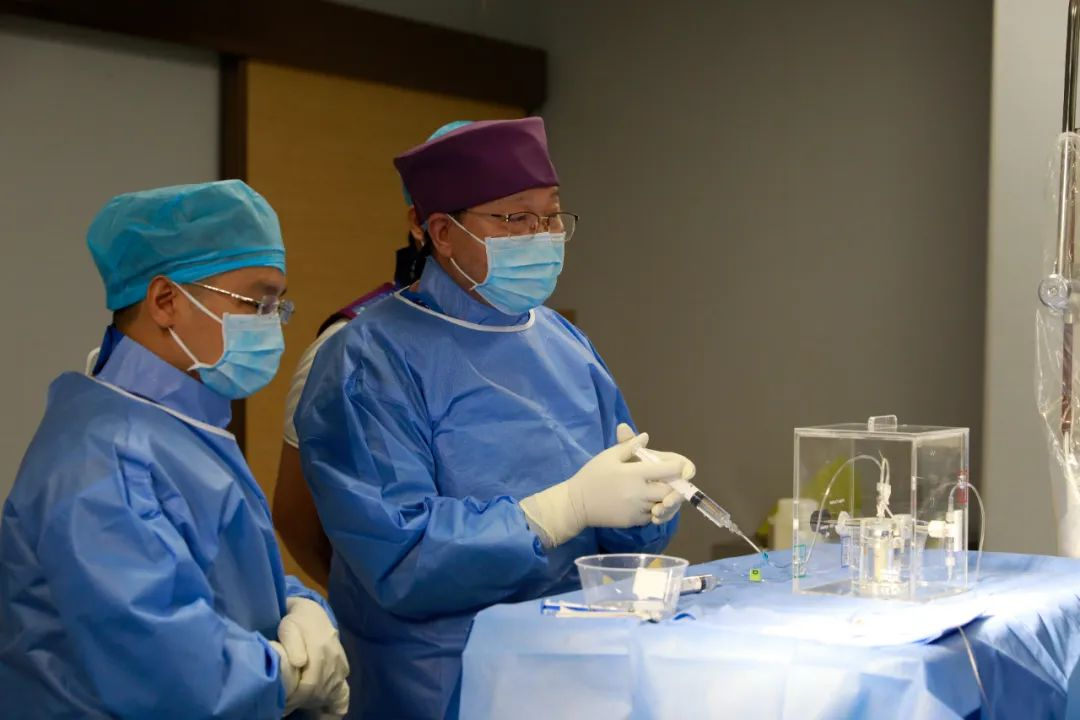Both the incidence and mortality of primary liver cancer rank among the highest for malignant tumors. The medical community has been accumulating scientific knowledge and practical experience, promoting innovation and development in liver cancer diagnosis and treatment.
Since Yttrium-90 resin microspheres (referred to as Y90) were approved for use in the U.S. and EU in 2002, clinical practice has demonstrated its four major advantages: strong tumor shrinkage, increased residual liver volume, clearance of portal vein cancer thrombus, and good quality of life. Different treatment strategies have developed, giving patients with initially inoperable hepatocellular carcinoma more chances at curative surgery.
Based on a large amount of high-level evidence, Y90-Selective Internal Radiation Therapy (Y90-SIRT) has been recommended by authoritative guidelines, including the Primary Liver Cancer Guidelines, BCLC, NCCN,
AASLD, ESMO, and Asian Clinical Consensus Statements.
2024 Primary Liver Cancer Guidelines recommendation
"The clinical applications of SIRT (TARE) for liver cancer patients mainly include:
① Curative treatment for early-stage liver cancer patients, achieving complete tumor necrosis;
② Downstaging treatment for intermediate-stage liver cancer patients, creating conditions for surgical resection or liver transplantation;
③ Palliative treatment for advanced liver cancer patients (with portal vein cancer thrombus), extending survival time;
④ Radioactive segmental/hepatic lobectomy, increasing the volume of residual liver while treating the tumor, creating opportunities for surgical resection;
⑤ Combined with systemic antitumor therapy, improving the efficacy for liver cancer patients."
2022 BCLC Prognosis and Treatment Recommendations SIRT is recommended for BCLC 0-C stage patients
2024 NCCN Hepatocellular Carcinoma Guidelines recommendation
2023 AASLD Practice Guidelines: Prevention, Diagnosis, and Treatment of Hepatocellular Carcinoma recommendation
Y90-SIRT treatment has been proven to be safe and effective in clinical practice, and it has been included in numerous authoritative domestic and international guidelines. It is recommended for curative treatment of early-stage liver cancer patients, transformational treatment of patients with potentially resectable but insufficient FLR, bridging treatment for patients with long expected waiting times, downstaging to liver resection/liver transplantation for intermediate and advanced patients, and palliative treatment for advanced patients.
Yttrium-90 resin microsphere injections were approved for marketing in mainland China in 2022, demonstrating excellent clinical efficacy. We look forward to more high-quality evidence from Chinese experts in the future, supporting updates to domestic and international guidelines, contributing to the power of Y90-SIRT treatment for liver cancer in China, and helping more patients move towards a cure.

Since Yttrium-90 resin microspheres (referred to as Y90) were approved for use in the U.S. and EU in 2002, clinical practice has demonstrated its four major advantages: strong tumor shrinkage, increased residual liver volume, clearance of portal vein cancer thrombus, and good quality of life. Different treatment strategies have developed, giving patients with initially inoperable hepatocellular carcinoma more chances at curative surgery.
Based on a large amount of high-level evidence, Y90-Selective Internal Radiation Therapy (Y90-SIRT) has been recommended by authoritative guidelines, including the Primary Liver Cancer Guidelines, BCLC, NCCN,
AASLD, ESMO, and Asian Clinical Consensus Statements.
2024 Primary Liver Cancer Guidelines recommendation
"The clinical applications of SIRT (TARE) for liver cancer patients mainly include:
① Curative treatment for early-stage liver cancer patients, achieving complete tumor necrosis;
② Downstaging treatment for intermediate-stage liver cancer patients, creating conditions for surgical resection or liver transplantation;
③ Palliative treatment for advanced liver cancer patients (with portal vein cancer thrombus), extending survival time;
④ Radioactive segmental/hepatic lobectomy, increasing the volume of residual liver while treating the tumor, creating opportunities for surgical resection;
⑤ Combined with systemic antitumor therapy, improving the efficacy for liver cancer patients."
2022 BCLC Prognosis and Treatment Recommendations SIRT is recommended for BCLC 0-C stage patients
2024 NCCN Hepatocellular Carcinoma Guidelines recommendation
2023 AASLD Practice Guidelines: Prevention, Diagnosis, and Treatment of Hepatocellular Carcinoma recommendation
Y90-SIRT treatment has been proven to be safe and effective in clinical practice, and it has been included in numerous authoritative domestic and international guidelines. It is recommended for curative treatment of early-stage liver cancer patients, transformational treatment of patients with potentially resectable but insufficient FLR, bridging treatment for patients with long expected waiting times, downstaging to liver resection/liver transplantation for intermediate and advanced patients, and palliative treatment for advanced patients.
Yttrium-90 resin microsphere injections were approved for marketing in mainland China in 2022, demonstrating excellent clinical efficacy. We look forward to more high-quality evidence from Chinese experts in the future, supporting updates to domestic and international guidelines, contributing to the power of Y90-SIRT treatment for liver cancer in China, and helping more patients move towards a cure.
